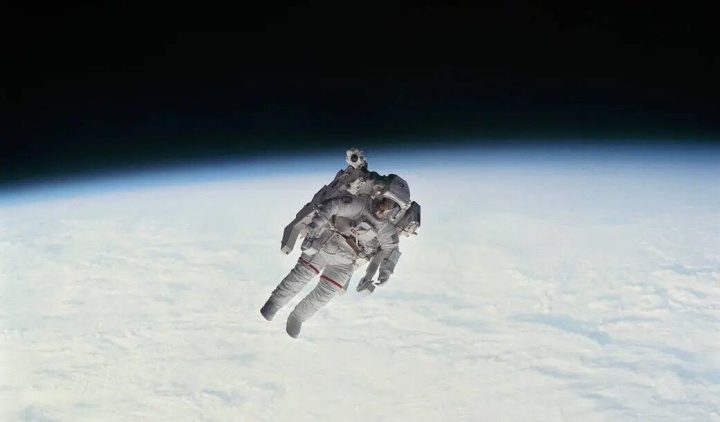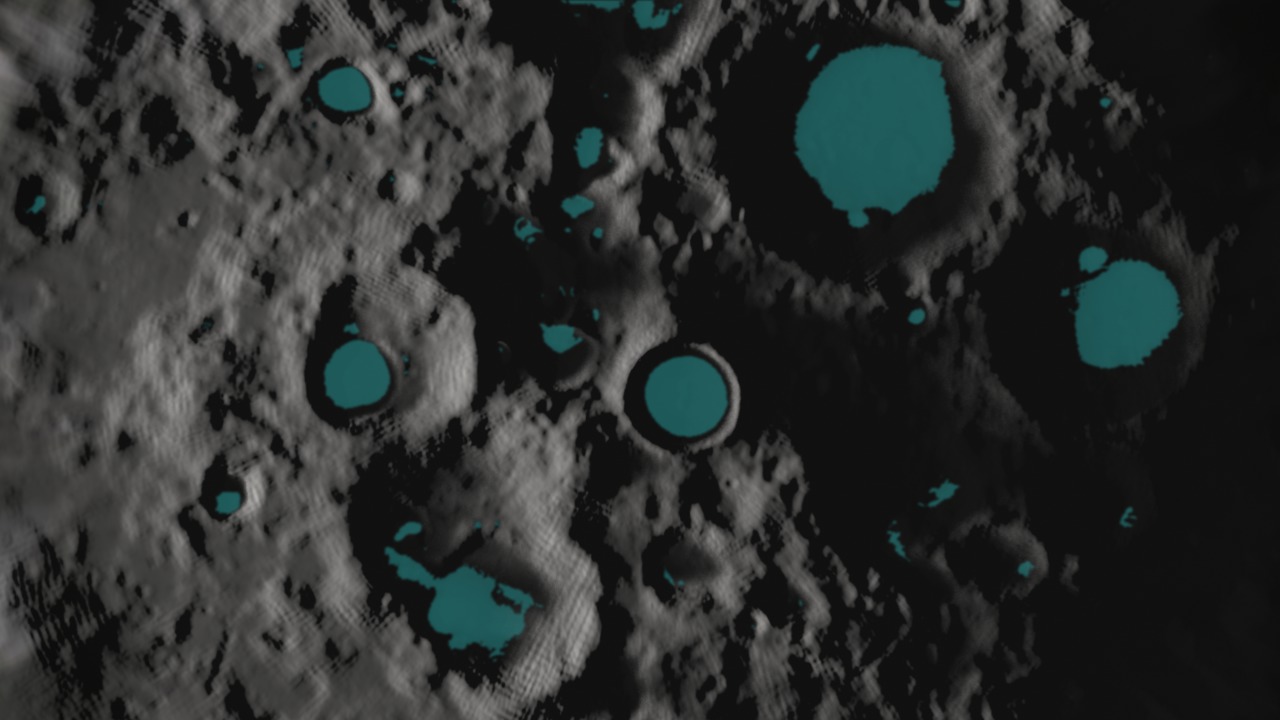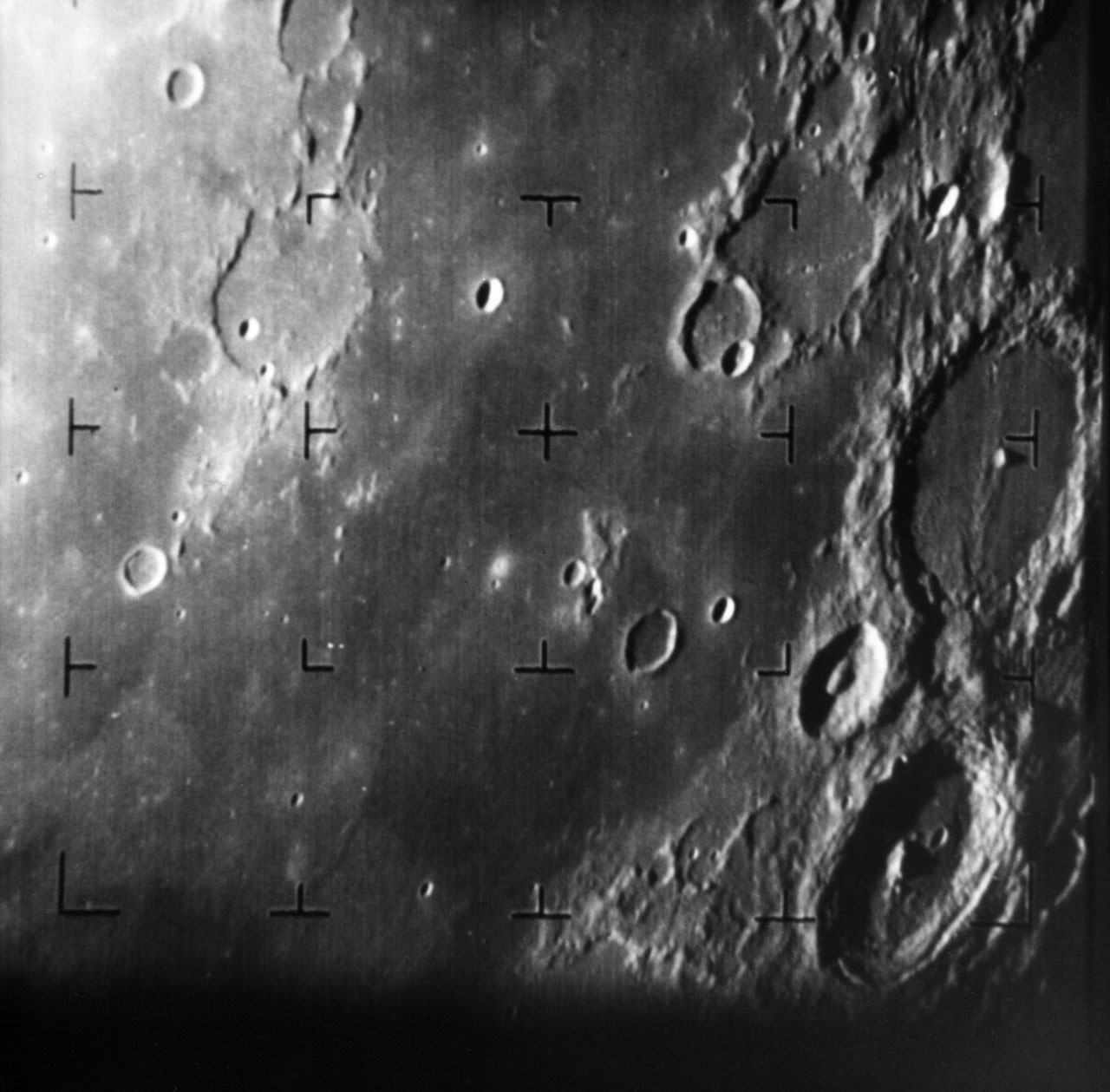THE CONVERSATION
Was going to space a good idea?

Sixty years ago, philosopher Hannah Arendt argued an interplanetary perspective may be bad news for humanity as we know it.
In 1963, six years after the first satellite was launched, editors from the Encyclopaedia Britannica posed a question to five eminent thinkers of the day: “Has man’s conquest of space increased or diminished his stature?” The respondents were philosopher Hannah Arendt, writer Aldous Huxley, theologian Paul Tillich, nuclear scientist Harrison Brown and historian Herbert J. Muller.
Sixty years later, as the rush to space accelerates, what can we learn from these 20th-century luminaries writing at the dawn of the space age?
The state of space 60 years on
Much has happened since. Spacecraft have landed on planets, moons, comets and asteroids across the Solar System. The two Voyager deep space probes, launched in 1977, are in interstellar space.
A handful of people are living in two Earth-orbiting space stations. Humans are getting ready to return to the Moon after more than 50 years, this time to establish a permanent base and mine the deep ice lakes at the south pole.

Water ice in the permanently shadowed craters of the lunar south pole. Image: NASA/Goddard Space Flight Center Scientific Visualization Studio. Data from JAXA/Selene
There were only 57 satellites in Earth orbit in 1963. Now there are around 10,000, with tens of thousands more planned. Satellite services are part of everyday life; weather prediction, farming, transport, banking, disaster management, and much more, all rely on satellite data. Despite these tremendous changes, Arendt, Huxley and Tillich, in particular, have some illuminating insights.
A brave new world
Huxley is famous for his 1932 dystopian science fiction novel Brave New World, and his experimental use of psychedelic drugs.
In his essay, he questioned who this “man” who had conquered space was, noting it was not humans as a species but Western urban-industrial society that had sent emissaries into space. This has not changed. The 1967 Outer Space Treaty says space is the province of all humanity, but in reality, it’s dominated by a few wealthy nations and individuals.
Huxley said the notion of “stature” assumed humans had a special and different status to other living beings. Given the immensity of space, talking of conquest was, in his opinion, “a trifle silly”.
Tillich was a theologian who fled Nazi Germany before the second world war. In his essay, he wrote about how seeing Earth from outside allowed us to “demythologise” our planet.
In contrast to the much-discussed “overview effect” which inspires astronauts with a feeling of almost mystical awe, Tillich argued that the view from space made Earth a “large material body to be looked at and considered as totally calculable”.

An image of the lunar surface taken by the US Ranger 7 spacecraft in 1964. Image: NASA/JPL-Caltech
When spacecraft began imaging the lunar surface in the 1960s, the process of calculation started for the Moon. Now, its minerals are being evaluated as commodities for human use.
Have humans changed, or is it how we view Earth?
Like Tillich, Arendt left Germany under the shadow of Nazism in 1933. She’s best remembered for her studies of totalitarian states and for coining the term “the banality of evil”. Her essay explored the relationship between science and the human senses. It’s a dense and complex piece; almost every time I read it, I come away with something different.
In the early 20th century, Einstein’s theory of special relativity and quantum mechanics showed us a reality far beyond the ability of our senses to comprehend. Arendt said it was absurd to think such a cosmos could be “conquered”. Instead, “we have come to our present capacity to ‘conquer space’ through our new ability to handle nature from a point in the universe outside the earth”.
The new geocentrism
The short human lifespan and the impossibility of moving faster than the speed of light mean humans are unlikely to travel beyond the Solar System. There is a limit to our current expansion into space.
When that limit is reached, said Arendt, “the new world view that may conceivably grow out of it is likely to be once more geocentric and anthropomorphic, although not in the old sense of the earth being the center of the universe and of man being the highest being there is”. Humans would turn back to Earth to make meaning of their existence, and cease to dream of the stars.
This new geocentrism may be exacerbated by an environmental problem already emerging from the rapid growth of satellite megaconstellations. The light they reflect is obscuring the view of the night sky, cutting our senses off from the larger cosmos.
The far future
But what if it were technologically possible for humans to expand into the galaxy?
Arendt said assessing humanity from a position outside Earth would reduce the scale of human culture to the point at which humans would become like laboratory rats, studied as statistical patterns. From far enough away, all human culture would appear as nothing more than a “large scale biological process”. Arendt did not see this as an increase in stature:
“The conquest of space and the science that made it possible have come perilously close to this point [of seeing human culture as a biological process]. If they ever should reach it in earnest, the stature of man would not simply be lowered by all standards we know of, but have been destroyed.”
Sixty years on, nations are competing to exploit lunar and asteroid mineral resources. Private corporations and space billionaires are increasingly being touted as the way forward. After the Moon, Mars is the next world in line for “conquest”. The contemporary movement known as longtermism promotes living on other planets as insurance against existential risk, in a far future where humans (or some form of them) spread to fill the galaxies. But the question remains.
Is space travel enhancing what we value about humanity? Arendt and her fellow essayists were not convinced. For me, the answer will depend on what values we choose to prioritise in this new era of interplanetary expansion. DM
This story was first published on The Conversation and was developed from a panel discussion at the Wheeler Centre. You can listen to it here. Alice Gorman is an Associate Professor in Archaeology and Space Studies at Flinders University.




















If we are going to survive and grow as a species, we must go to space. I think it will be good for us all to be reminded that fact and reality matter a lot more than opinion. Apart from that, there are vast resources available, accessing them could finally allow us to start addressing the various scarcity problems which plague our world, as well as provide redirection for the more challenged luddites among us… Or possibly somewhere to relocate them:)
The bottom line is that we are screwing up the planet.
The problem is not about scarcity of resources. It is about the excess breeding of humanity. (I realise that this is a highly sensitive subject.)
There should probably be a complete moratorium on new human births for at least 10 years.
However, all our economic models are based on expanding human population growth.
Quo vadis?
I agree. And I fail understand why it is deemed politically incorrect or at least insensitive to discuss reducing the human population. The bonus edition of Attenborough’s Planet Earth claimed that it should be less than 2 billion if we are to maintain consumption levels. Capitalism can only be maintained with increased consumption and hence is doomed to fail due to finite resources. And yet developed countries continue to encourage new births to avoid there being too many elderly and not enough youth to support them. This makes the whole economic order a pyramid scheme and means we are essentially saying up-yours to future generations and to other sentient species whose fates are in our hands.
Thats a remarkably short sighted opinion. Who says anyone should have the right to tell other people how to live and breed? Surely its our divine right to outstrip all our resources and fill the planet with people who have no hope at all of a better future. Yes – thats sarcasm…
Funnily enough, all these problems go away when we go to space more for manufacturing and resources. Sky Lab (way back in the late 60’s/early 70’s proved the viability of manufacturing processes in space). Flipping off the shelf tech from the 60’s could have established viable moon bases etc, etc, etc. Instead, we were blocked by zero growthers (yes – just like you) and set on a backwards trajectory. Not a good idea, man. Quad Erat Demonstrandum.
Manufacturing processes in space are mere technical exercises. Extra planetary economic activity will never be financially viable. In any case we have more pressing problems to resolve on the planet.
Blocked by zero growthers? If only that were true.
The unintended consequences of the Chinese laws to reduce their population is a cautionary tale for all politicians .
The point is not to use more resources, wherever we go, it’s to use resources more wisely. Your viewpoint is the typical free-market/capitalistic one.
On Earth it’s the one-percenters who use up most resources, cause the most pollution. What makes you think it will be any different on other planets????
Yes you are a Luddite, but in the intellectual sense!
If we could travel at close to speed of light – a trip across our solar system is a mere 9 hours.
If we could travel at the speed of light, a trip to the next star system would take over 4 years. But as an object approaches the speed of light, its observed mass becomes infinitely large. As the article suggests, I don’t see any reason why we will ever escape our solar system.
The first circumnavigation of our planet took 4 years in 1519 Taking 4 years to go to the nearest star seems a trifle if you take modern technology into account. By the time humans are ready to attempt that trip, we will be much closer to achieving light speed
I don’t know, hey. Consider that it takes almost a year to accelerate to lightspeed at 9 G. Imagine being strapped into a rollercoaster going full tilt for a year! It then takes the same time to decelerate.
To calculate the time it takes to accelerate to the speed of light at 9 G’s, we can use the formula for acceleration:
a=ΔtΔv
where:
(a) is acceleration,
(\Delta v) is the change in velocity (final velocity – initial velocity), and
(\Delta t) is the change in time.
Given that the speed of light is approximately (3 \times 10^8) m/s and the acceleration due to gravity ((G)) is approximately (9.8) m/s², we can rearrange the formula to solve for time ((\Delta t)):
Δt=aΔv=9×9.8m/s23×108m/s≈3,061,224.49seconds
This is equivalent to approximately 354.31 days.
However, it’s important to note that this is a theoretical calculation. In reality, according to Einstein’s theory of relativity, it’s not possible to reach or exceed the speed of light. Also, sustaining 9 G’s of acceleration for an extended period would have significant physiological effects on a human body.
Touche’.
Until we learn it is best to stop killing each other it would be senseless. Imagine the resources required trying to kill each other up there.
The ancient Romans kept the plebs happy by providing bread and circuses. Circuses were more popular. Nothing has changed.
Space Exploration does two things. It provides obscene amounts of money for the military industrial establishment .
It also provides, as a spinoff, really spectacular circuses.
There is no possible chance that more than a tiny minority will ever colonise the Moon or Mars.
We are no better off knowing what Pluto looks like or what a galaxy light years way looked like millions of years ago.
We will know , when we get a answer to ” Fermi’s Paradox”.
Human extinction will be great news for the planet and all other species. We need introspection of who we are and what we do.
Elon isn’t my favourite source of ideas but since actually listening to the guy I’m now considering his argument about it being a necessity that humans not remain a single planet species.
Elon isn’t my favourite source of ideas but since actually listening to the guy I’m now considering his argument about it being a necessity that humans not remain a single planet species.
Life on earth (all life, not only human life) exists because of an incredibly lucky set of circumstances (perfect distance from the sun combined with ideal physics and chemistry and about 3.5 billion years ).
Life may well go extinct on earth. It’s looking possible. And while it’s true that life is very likely to come into existence again it’s also likely to take another set of perfect circumstances AND another 3.5 billion years.
So, what do we do? Do we preserve this precious hard-won thing called life (grass, birds, humans etc) by putting some of it on other planets (albeit in sealed space stations)?
And if we do what and whom do we select to represent the best of what evolution has produced?
Oops… Life on earth (all life, not only human life) exists because of an incredibly lucky set of circumstances (perfect distance from the sun combined with ideal physics and chemistry and about 3.5 billion years ).
Life may well go extinct on earth. It’s looking possible. And while it’s true that life is very likely to come into existence again it’s also likely to take another set of perfect circumstances AND another 3.5 billion years.
So, what do we do? Do we preserve this precious hard-won thing called life (grass, birds, humans etc) by putting some of it on other planets (albeit in sealed space stations)?
And if we do what and whom do we select to represent the best of what evolution has produced?